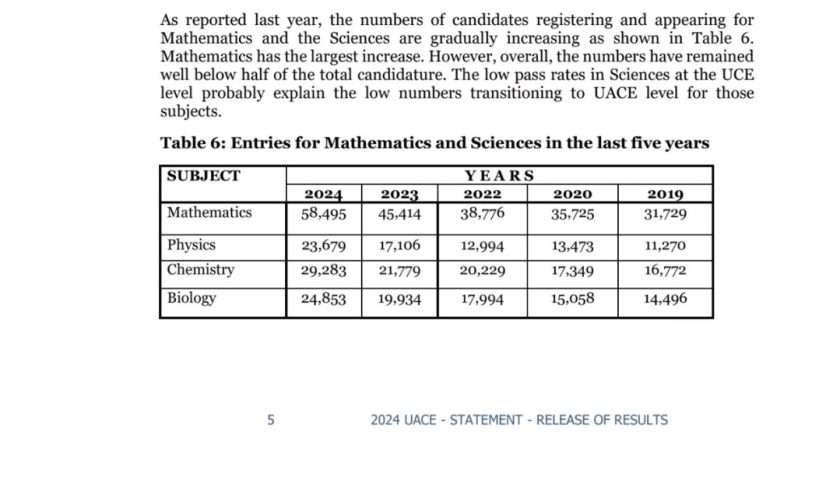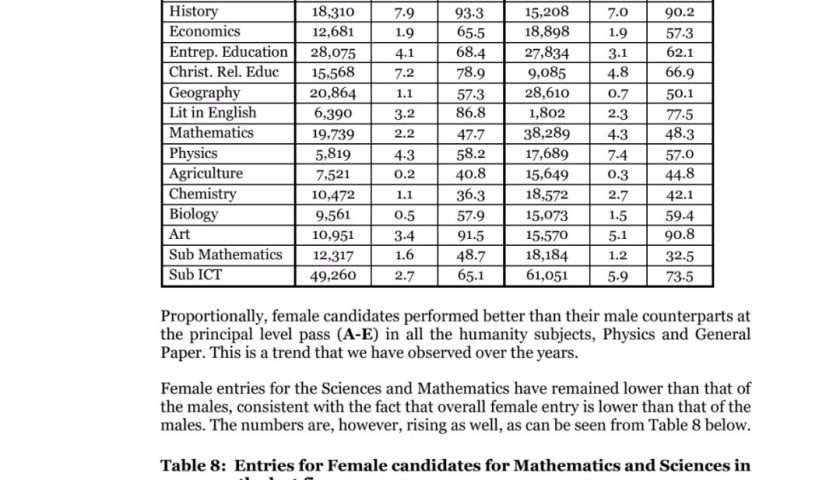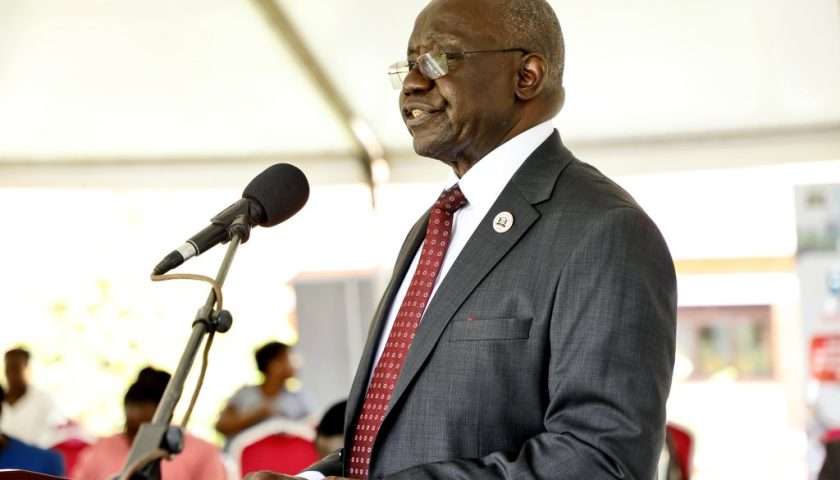Female candidates, although fewer in number than male candidates, performed proportionally better than their male counterparts, said Dan Odongo, the Uganda National Examination Board (UNEB) Executive Director, during the release of the UACE 2024 examination results.
He stated that the percentage of candidates achieving upper levels (3P and 2P) was higher among females, while the percentage of passes at lower levels and the failure rate were lower for female candidates compared to their male counterparts.
According to the UNEB Executive Director, a total of 141,996 candidates registered for the 2024 UACE examinations compared to 110,566 candidates in 2023—an increase of 31,430 candidates (28.4%). This represents a significant rise in candidature compared to previous years. Of these, 61,957 (43.6%) were female, and 80,039 (56.4%) were male. Male candidates accounted for 53.1% (16,695) of the increased candidature.

“It is possible that, as a result of the change in admission criteria for primary school teachers, candidates who would have pursued Grade Three teacher training after the Uganda Certificate of Education (UCE) chose to follow the UACE pathway,” Odongo explained.
He also noted that the number of UACE examination centres increased by 154 (7.3%), from 2,101 in 2023 to 2,255 in 2024. The actual number of candidates who appeared for the examination was 140,888, compared to 109,486 in 2023—an increase of 31,402 candidates (28.7%). Of these, 61,598 (43.7%) were female and 79,290 (56.3%) were male.
UACE 2024: Rising Female Participation
Odongo highlighted the steady increase in the number of female candidates completing the UACE cycle. In 2022, 40,713 females sat for the exam. This number increased by 15.1% to 46,860 in 2023, and in 2024, it rose to 61,598—a 31.5% increase.
“It should also be noted that there are other post-UCE vocational programs, particularly in the health sector, which continue to attract significant numbers of female candidates,” Odongo added.
In his remarks, Prof. Celestino Obua, the UNEB Chairperson, acknowledged concerns raised by some stakeholders regarding the grading of UCE under the competency-based curriculum.

“We have taken cognizance of the confusion created by Result 1, which was misinterpreted as Grade 1. We also note that the Ministry of Education and Sports is under pressure to assign numerical values to the Grades A–E,” he said.
He emphasized that UNEB recognizes these concerns as valid and plans to engage with stakeholders to clarify the grading system. However, he stressed that the Board will not assign numerical values to the grades, as this is not aligned with the objectives of the new curriculum.
Low Cases of Examination Malpractice
Regarding examination malpractice, Prof. Obua stated that UACE 2024 recorded the lowest number of malpractice cases compared to the Primary Leaving Examination (PLE) and UCE. Consequently, very few results will be withheld.
“The affected candidates will be accorded hearings as provided by law. The Board has already conducted hearings for withheld PLE cases. Where there was insufficient evidence, results were released, while proven cases were canceled under Section 38(1) of the UNEB Act, Cap 259,” he explained.
He added that UNEB will publish the list of canceled results to inform the public and prevent headteachers from issuing fake results when they know their schools have no valid outcomes.
Prof. Obua also highlighted an upward trend in the number of candidates offering STEM (Science, Technology, Engineering, and Mathematics) subjects. While the numbers remain below those offering humanities, there is a deliberate effort to increase STEM participation to expand the pool of candidates eligible for science programs in tertiary institutions.
“One of the ways to achieve this, Mama, is to continue improving the pass levels by enhancing the adequacy of science teaching and learning materials in our schools,” Obua said.
In addition, he expressed satisfaction with the exponential growth in UACE candidature, which increased from 110,566 in 2023 to nearly 142,000 in 2024. Similarly, the number of candidates who failed to report for examinations has proportionately decreased, continuing a positive trend for the third consecutive year.

